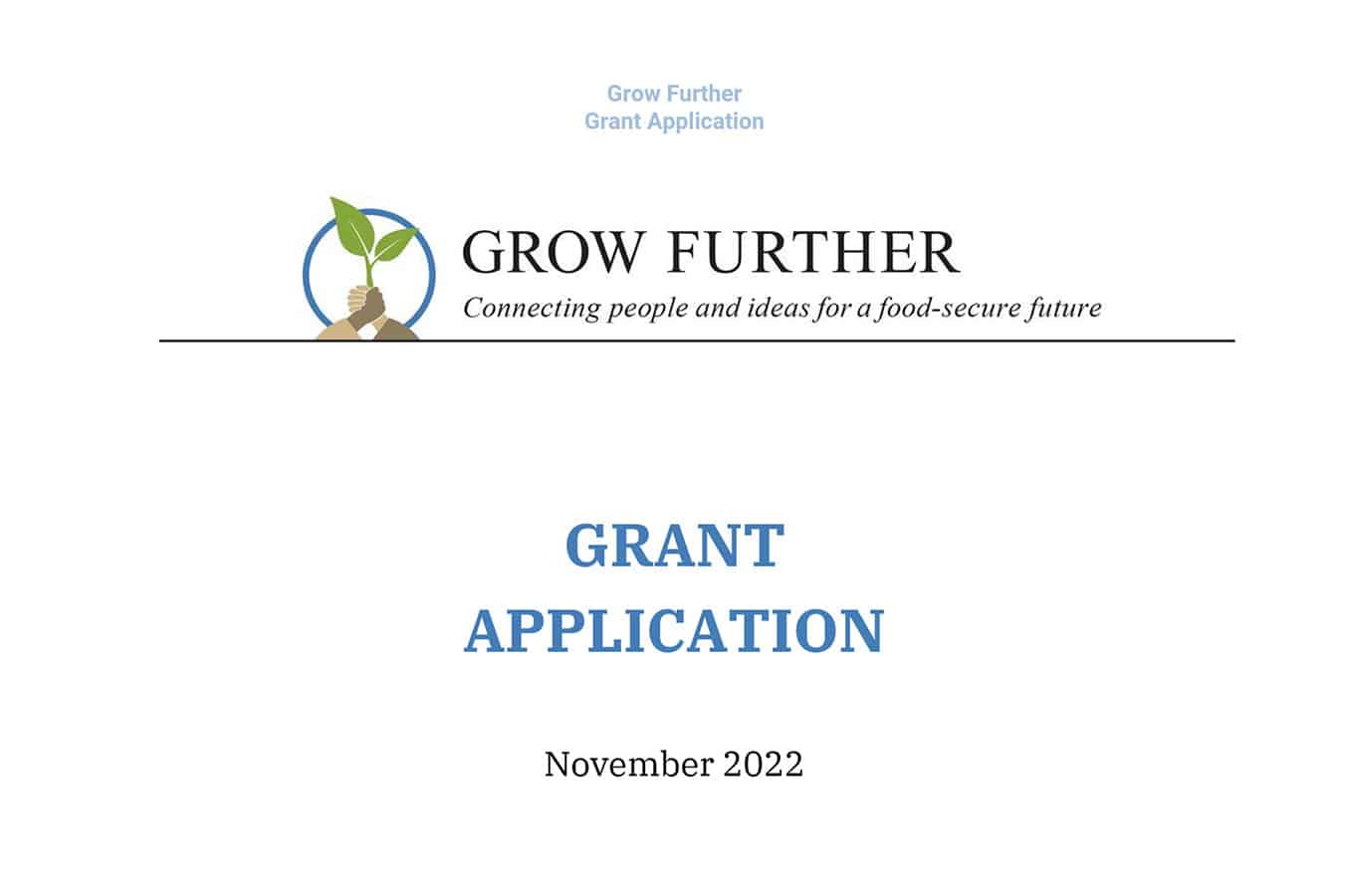Grow Further is a non-profit organisation (based in Seattle, Washington, USA with a remote national/global team) that provides grants for agricultural innovations relevant to smallholder farmers and other populations at risk of food insecurity. It is a privately funded public charity, founded by an economist and funded by a diverse community of individual donors spread around the world.
Call for proposals
Grow Further invites agricultural researchers to submit proposals for funding and, in some cases, also for management assistance.
In this grant cycle, Grow Further will consider grants in nutrition, climate adaptation, and agricultural income. Depending on the quality of the applications, they intend to award two grants, one in the area of climate adaptation and the other in the area of nutrition and value-added agriculture.
Eligibility Criteria
All types of organisations, public, private and non-profit, are in principle eligible to apply, although Grow Further may apply additional due diligence to for-profit entities.
They plan to award the majority of grants to institutions based in low-, lower-middle- or upper-middle-income countries, although this is not a requirement, as long as the grant benefits small farmers and other populations at risk of food insecurity in these countries.
Thematic areas
- Socio-economic objectives
Grow Further supports subsidies relevant to small farmers and other populations at risk of food insecurity and improves one or more of the following:
Nutrition: This includes both improving nutrient levels in crops (e.g. biofortification) and improving the breeding of species that are already nutritious (fruit and vegetables, fish, etc.).
Climate adaptation: This covers not only heat tolerance, but also almost all types of biotic (pests, diseases, weeds, etc.) and abiotic (heat, drought, salinity, submergence, cold, soil nutrients, etc.) stress tolerance, both in crops and livestock. Anything that reduces the risk of farming or helps farmers on marginal land is also susceptible to climate adaptation. We also count work on adapting to rising carbon dioxide levels as climate adaptation.
Agricultural income: This mainly covers facilitating the production of high-value products or improving the quality of existing products, but can in some cases involve reducing the cost of production.
- Species
Grow Grow funds research into domesticated species relevant to food security and nutrition, including cereals; pulses; edible roots and tubers; fruit and nuts; edible vegetables and mushrooms; forage crops; animals raised for meat, milk and/or eggs; and species that support food production (cover crops, bees, draught animals, etc.).
This does not include timber; biofuels; crops and livestock raised for fibre; crops grown for recreational substances; ornamental plants; herbs and flavourings, unless there is a clear link to food security; etc.
- Subjects
Grow Further will consider proposals from a variety of disciplines, including information and communication technologies in agriculture, as well as more traditional disciplines such as agronomy, crop science, plant protection, animal science, veterinary medicine, soil science, and agricultural engineering.
- Knowledge Systems
They generally fund applied research in the field, including on-farm trials, as opposed to basic laboratory research. However, to scale up technologies, Grow Further plans to rely on private sector commercialisation, government agricultural extension services, or philanthropic impact investment funds rather than philanthropic capital.
Benefits
Grow More generally makes grants in the range of 10-100,000 dollars a year. Grants generally last from 1 to 5 years. Specific grant announcements may include more specific intervals. Grants are considered repayable.
Apply here.


